General
Mindset Education can Fast Track Uganda’s Development – Dr. Hun Mok Lee
Published
3 years agoon
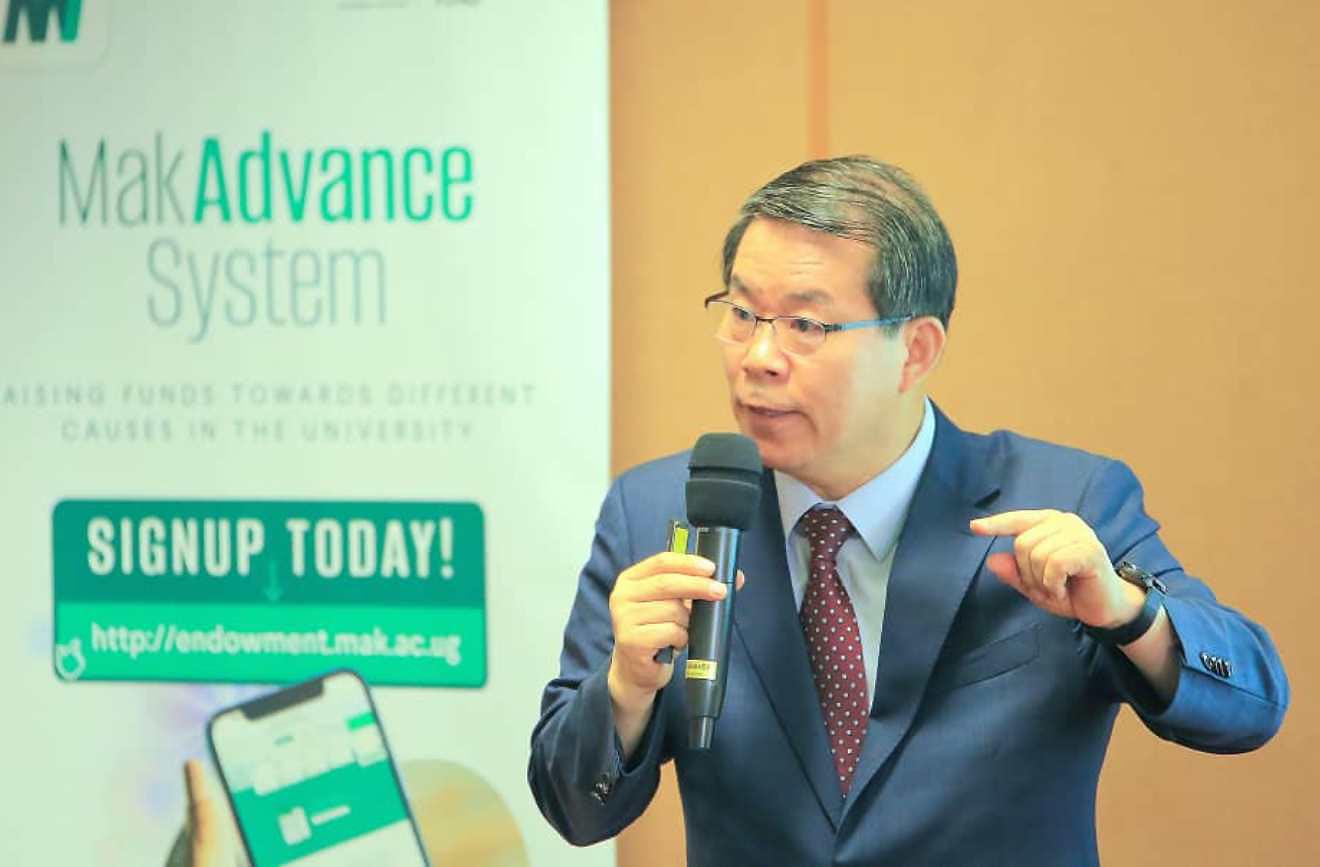
The Secretary General of the International Youth Fellowship (IYF), Dr. Hun Mok Lee has assured the Makerere Community that Mindset Education (ME) holds the key to fast tracking Uganda’s National Development from the present state to the first world. His assurance was based on the pivotal role played by ME in South Korea’s own miraculous growth and transformation from a GDP Per Capita of US$ 79 in 1963 to the current US $ 35,000. He made the remarks at a meeting with members of Top Management on 9th September 2022 in the Council Room, Frank Kalimuzo Central Teaching Facility (CTF).
Mind Education, he said, is built upon the three tenets of;
- Development of the ability to think deeply,
- Formation of a strong heart, and
- Cohesion through exchange.
Delving deeper into each tenet, Dr. Lee shared that Korean companies such as Samsung, LG and Hyundai that had previously treasured candidates with high Intelligence Quotient (IQ) were gradually moving over to those with high Emotional Quotient (EQ). Candidates with high EQ, he said, have the ability to think deeply, exercise self-control, consider others better than themselves, stay humble and put the needs of others before their own.
A strong heart, he continued, was the key to living a happy and healthy life. “Through the Mind Education, if you grow the immunity of the heart or if you make your heart become strong, it won’t be that you don’t have difficulties, you will have difficulties but you will overcome them” he counselled, adding that “rather than not having a problem, it is better to have the problem and have the power to defeat it.”
Dr. Lee added that South Korea has also applied ME to the field of sports with amazing results. The application of ME, he said, is the reason why players like Tottenham Hotspur’s Son Heung-min jointly claimed the 2021/22 English Premier League Golden Boot prize alongside Liverpool’s Mohamed Salah. Other feats he shared included South Korea’s second place finish in the FIFA U-20 World Cup held 2019 in Poland. Originally perceived as underdogs, the team was not expected to progress past the group stages. And so it was extremely shocking when they went all the way to the finals, eventually losing 3-1 to Ukraine.
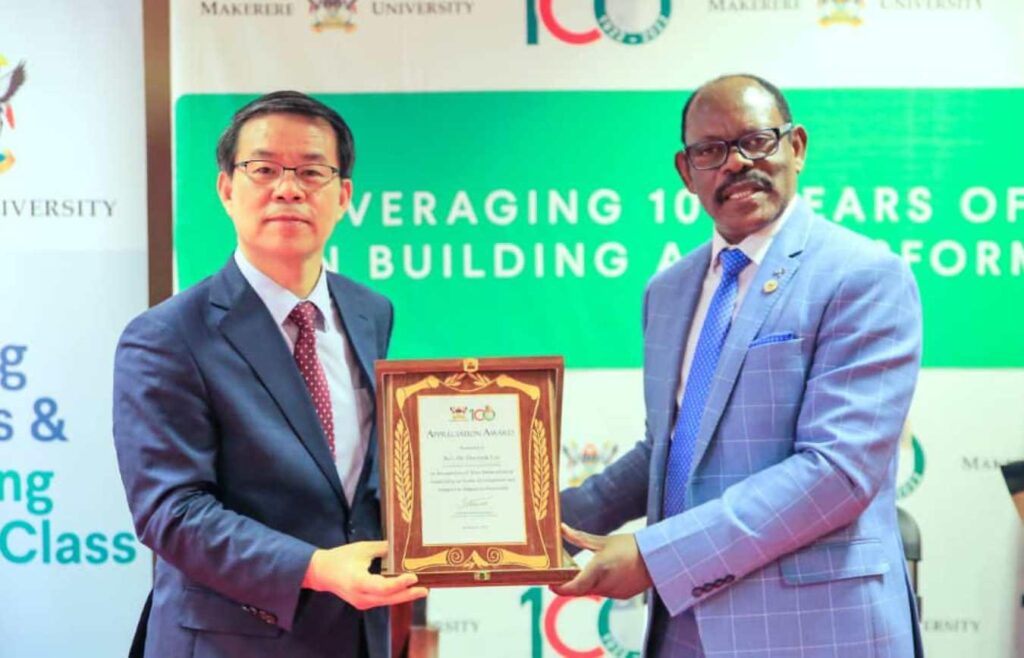
He then took this as the perfect opportunity to share one of Michelangelo, the famous Italian painter, sculptor and poet’s quotes.
“The greatest danger for most of us lies not in setting our aim too high and falling short; but in setting our aim too low, and achieving our mark.”
― Michelangelo Buonarroti
On the third tenet of cohesion through exchange, Dr. Lee shared the mystery behind the California redwood, a tree that rises to heights of over 110 metres, lives for over 2,000 years and yet has roots less than three metres deep.
“The roots of the redwood stick together” said Dr. Lee emphatically. “And so they hold one another, they share the nutrition together, live 3,000 years and they do not fall over during the hurricane” he further described.
Based on the above tenets, the Secretary General without hesitation described Mind Education as the single most powerful force behind the transformation of South Korea from a poor agricultural country into highly industrialised nation.
“In South Korea, we do not have even one single coffee tree, but how did we become the world’s third largest exporter of coffee?” he asked, pausing for a second before quickly answering “We imported the coffee beans from Africa and begun to think deeply, and made them into a coffee product that we export to Europe, America and the Middle East.”
“We don’t even have one single drop of petroleum,” he continued. “We import crude oil from the Middle East, refine it into many petroleum products and export them – we are ranked number one in the world” explained Dr. Lee, further driving his point on the benefits industrialisation home.
His most profound example of the day was Thomas Alva Edison, famously known for inventing the light bulb. Described as having “an intellectual disability” by his childhood teachers, the turning point for Edison, shared Dr. Lee, was when his mother, upon receiving this report from her son’s school refused to describe him as such, and instead convinced him that he was a genius.
“He was the genius of the geniuses. Which university do you think he graduated from? From Harvard University? Oxford University? No way. With the mindset, he is the one who invented the most in human history… misery and happiness is made from the heart. If you receive Mind Education, you can change.” concluded Dr. Lee.
The Vice Chancellor, Prof. Barnabas Nawangwe in his remarks thanked Dr. Hun Mok Lee for his visit and insightful presentation, noting that South Korea’s first class infrastructure and facilities are proof that investing in Mind Education pays off. He added that Makerere as the top University has the responsibility to prove to the rest of the country that ME indeed works.
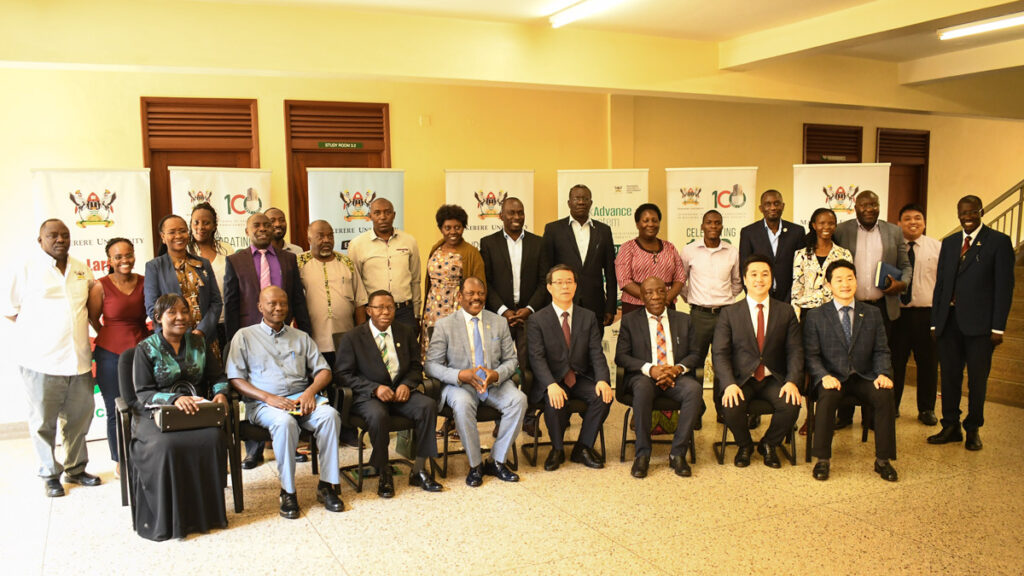
“We must begin somewhere and move fast. Dr. Lee’s presentation showed that it was after 30 years of changing the education system that the economy finally took off and so we must appreciate that it takes some time” added Prof. Nawangwe.
The Dean, School of Psychology Assoc. Prof. Grace M. Kibanja thanked the Secretary General for his enlightening presentation and the IYF Uganda office for the support and good working relationship over the years. Giving a brief history of the collaboration, she shared that the two parties signed a Memorandum of Understanding on 8th February 2016, under the Deanship of Prof. Peter K. Baguma.
The MoU was aimed at facilitating; joint youth development, annual youth camps, workshops, voluntary community activities especially training youth through district leadership and teaching Mind Education. As a result, the National Mind Education Programme was launched at the Freedom Square on 30th July 2017 and subsequently, Rev. Dr. Ock Soo Park, the IYF Founder was hosted by Makerere University in 2019.
“In the same year, we piloted the Mind Education Programme at the School of Psychology with the Bachelor of Industrial and Organisational Psychology intake of 2019/2020… the feedback from these students revealed that indeed, there is a lot that changes in them as individuals when they go through these trainings” testified Assoc. Prof. Kibanja.
The staff have not been left out either. On 6th November 2020 Makerere University hosted a virtual Mind Education Workshop for staff, where the IYF Founder, Rev. Dr. Ock Soo Park delivered the keynote address. His concluding message then was, “leave behind your first level of thought and try to embrace deep thinking. If you go about life thinking deeply, you will live a blessed glorious life”
The proposed Mind Education Programme course has been passed by the School of Psychology Academic Board. A stakeholders workshop is being organised to receive feedback before the final curriculum is submitted for approval. The Mind Education Programme, it is envisaged, will be a crosscutting course tenable at both undergraduate and postgraduate levels.
You may like
-
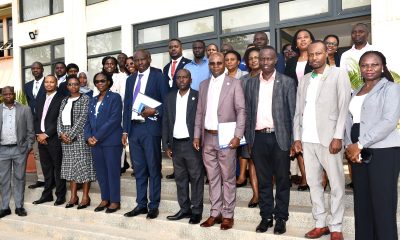

Parliament, MoFPD and Makerere Launch Five-Day Training on Integrated Macroeconomic Modelling to Strengthen Fiscal Oversight
-


Makerere University School of Public Health Graduates First Cohort of Cost-Effectiveness Analysis Short Course
-


Call For Applications: Annual Innovation Commercialisation Award
-


How People Earn a Living is Contributing to Malaria Risk in Uganda, Study Finds
-
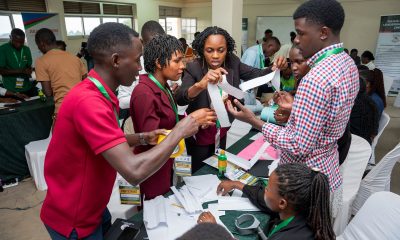

UNDP and JNLC hold training in Fort Portal: Participants equipped with skills in Advocacy and Gender Equality, Team Building, Inclusive Leadership, and Financial Literacy
-


Makerere University Launches Knowledge-Sharing Platform to Drive Innovation and Economic Growth
General
Advert: Admissions for Diploma/Degree Holders under Private Sponsorship 2026/27
Published
19 minutes agoon
March 5, 2026By
Mak Editor
The Academic Registrar, Makerere University invites applications from Ugandan, East African and international applicants for the undergraduate under the private sponsorship scheme for the 2026/2027 Academic Year.
Each applicant should:
EITHER
Hold at least a Second Class/Credit (or equivalent classification) Diploma or otherwise as specified in the Diploma Holders’ requirements from a recognised chartered institution, relevant to the programme applied for. Certified copies of academic transcripts and certificates (not photocopies of certified copies) from the awarding institutions and one passport size photograph must be submitted to Office 315 level three (3) Senate Building after applying online.
OR
Be a Graduate from a RECOGNISED CHARTERED UNIVERSITY. Certified copies of academic transcripts and certificates (not photocopies of certified copies) from the awarding Institutions and one Passport size photography MUST be submitted to Office 315, Level three (3) Senate Building after applying online.
N.B. Applicants will be responsible for verification of their academic documents from the awarding Institutions after admission.
Other relevant information can be obtained from UNDERGRADUATE ADMISSIONS OFFICE, LEVEL 3, SENATE BUILDING OR CAN BE found on the University Website.
Diploma Holder applicants who hold class three (3) diploma certificates or Pass Diplomas are not eligible for admission and therefore should not apply, except where stated in the Diploma Holders requirements.
HOW TO APPLY
Applications shall be submitted online using the ACMIS system for all applicants. Diploma/degree holders and internationals will have to submit certified copies of their transcripts and certificates and a passport size photograph to Office 315, Level 3, Senate Building after submitting the application online and payment of application fees.
Details of the Diplomas required for each programme are in the document attached below, the same list can be found here: https://mak.ac.ug/how-apply/diploma-holders-application-guide
OTHER RELEVANT INFORMATION CAN BE OBTAINED FROM UNDERGRADUATE ADMISSIONS OFFICE, LEVEL 3, SENATE BUILDING, MAKERERE UNIVERSITY WITH EFFECT FROM 5th JANUARY, 2026.
A NON-REFUNDABLE APPLICATION FEE OF SHS.55,000/= FOR UGANDAN AND EAST AFRICAN APPLICANTS OR $76.5 OR EQUIVALENT FOR INTERNATIONALS, (UGX.286,250=) PLUS BANK CHARGEs SHOULD BE PAID IN ANY OF THE BANKS USED BY UGANDA REVENUE AUTHORITY (URA)
CANDIDATES WHO HOLD GRADES X, Y, Z, 7 AND 9 OF ‘O’LEVEL RESULTS SHOULD NOT APPLY BECAUSE THEY ARE NOT ELIGIBLE FOR ADMISSION.
ONLINE APPLICATION PORTAL USER GUIDE
Applicants should access the Institution’s Admissions URL https://apply.mak.ac.ug
- Signup using full name, e-mail and Mobile Number. Please note that your name must be similar to the one on your supporting academic documents for your application to be considered valid. If you changed your names please go to Senate Building Office 611 with a deed poll and gazette supporting the name change.
- A password will be sent to both your e-mail and mobile number.
- The system will prompt you to change the password to the one you can easily remember.
- To fill a form (all form sections must be filled)the applicant clicks on the APPLY NOW button displayed on the running scheme.
- Obtain a pay reference nunber(PRN) after submitting the application.
- Make a payment at any of the banks used by Uganda Revenue Authority.
MOBILE MONEY PAYMENT STEPS:
1. Dial *272*6# on MTN or Airtel
2. Select option 3-Admission
3. Select option 3 Pay Fees
4. Enter reference number obtained from Application portal
5. Details of Application form will be confirmed
6. Enter PIN to confirm payment
The closing date for receiving applications was extended to Friday 13th March, 2026.
General
Makerere Explores Strategic Industry Partnership with Psalms Food Industries to Strengthen Manufacturing Innovation
Published
18 hours agoon
March 4, 2026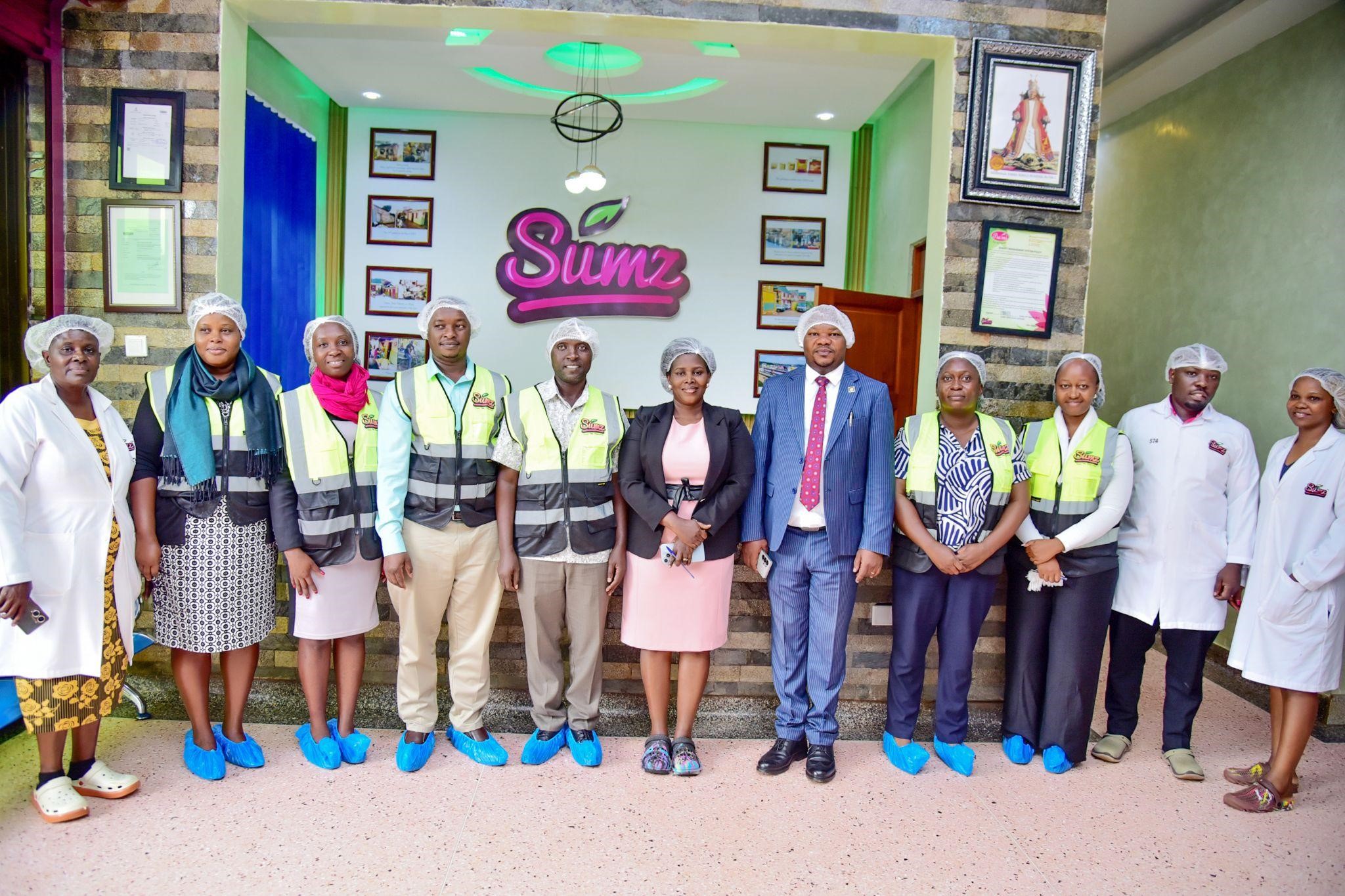
On 2nd March, 2026, representatives from the Advancement Office, the College of Business and Management Sciences and the University Innovation Pod visited Psalms Food Industries to discuss a prospective partnership aimed at strengthening university–industry collaboration in manufacturing, research, innovation, and skills development.
Psalms Food Industries, a homegrown snacks innovation and manufacturing company, operates three major brands, namely, Sumz, Afrikan Harvest and Krunchables, which have grown to a range of 37 products and target the introduction of five new products annually. The company distributes products across Kenya, Rwanda, the Democratic Republic of Congo, South Sudan, and, recently, Tanzania. As a labour of love, the idea of producing snacks was born during the honeymoon of Mr and Mrs Ngabirano, who now run Psalms Food Industries side by side.
Dr. Denis Ngabirano, CEO and Co-Founder of Psalms Food Industries, during the meeting, described the company as “a snacks innovation house, with all our products developed in-house.” He noted.
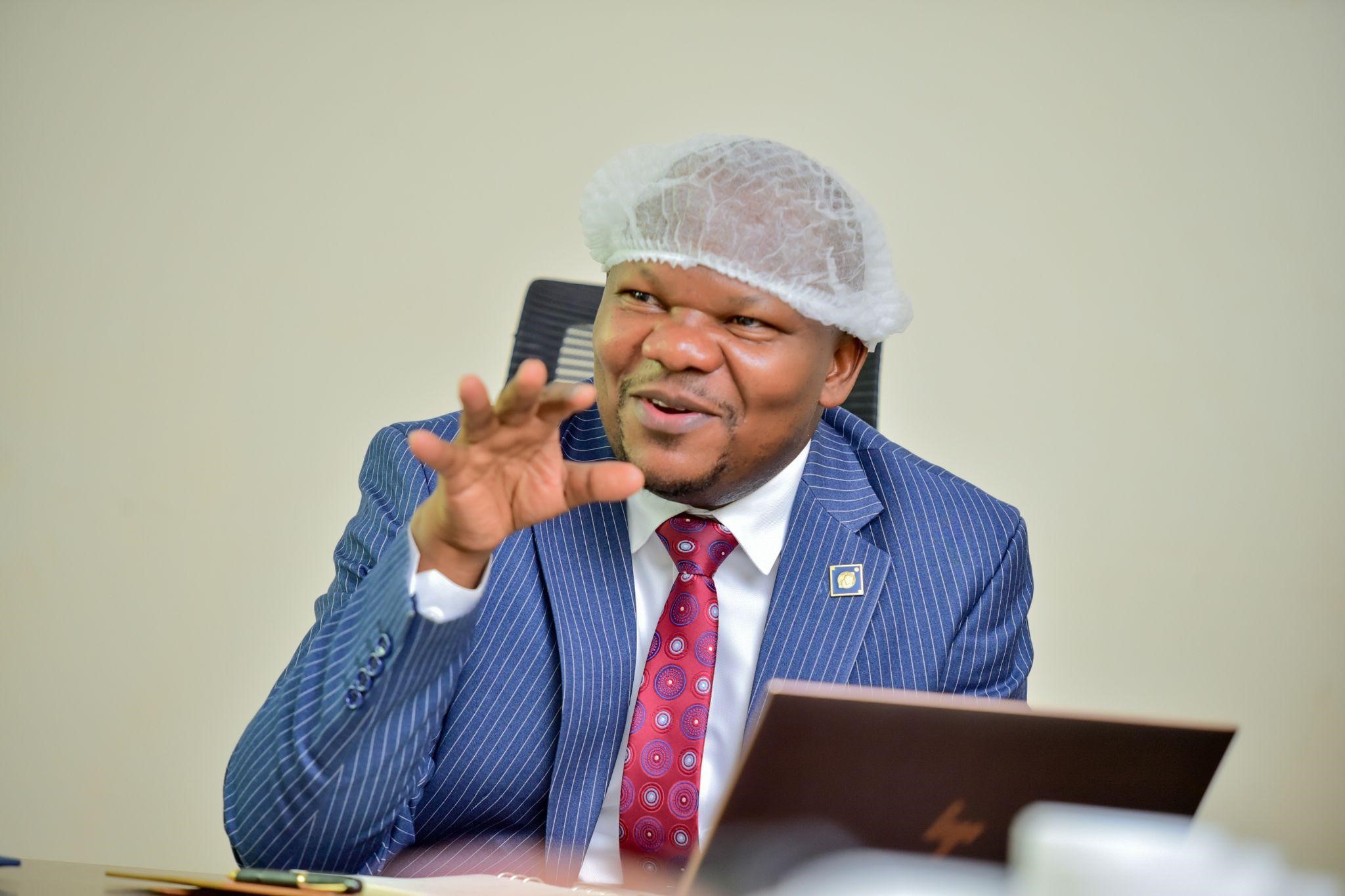
He emphasised the company’s commitment to quality assurance and consumer-centred research, noting that Psalms conducts surveys and gathers customer feedback to inform product development, supported by an internal microbiology and chemistry laboratory.
Dr. Denis Ngabirano noted that the company had only recently introduced two brands, “Afrikan Harvest for it’s health conscious clientele and Kruchables for it’s volume centric clientele.
“Afrikan Harvest has no additives, it is a brand for health-focused consumers,” he explained, while highlighting the differentiated positioning of their product lines. “Sumz is our premium brand, and Krunchables focuses on volume.”
Student-Centered Experiential Learning
A key focus of the meeting was structured experiential learning for students across disciplines. Potential areas of collaboration include internships, graduate trainee pathways, and hands-on exposure within Psalms’ incubation and production facilities.
The proposed engagement spans multiple fields, including environmental sciences, engineering, procurement and logistics, finance and accounting, quality control, production and manufacturing, human resource management, marketing, and international business.
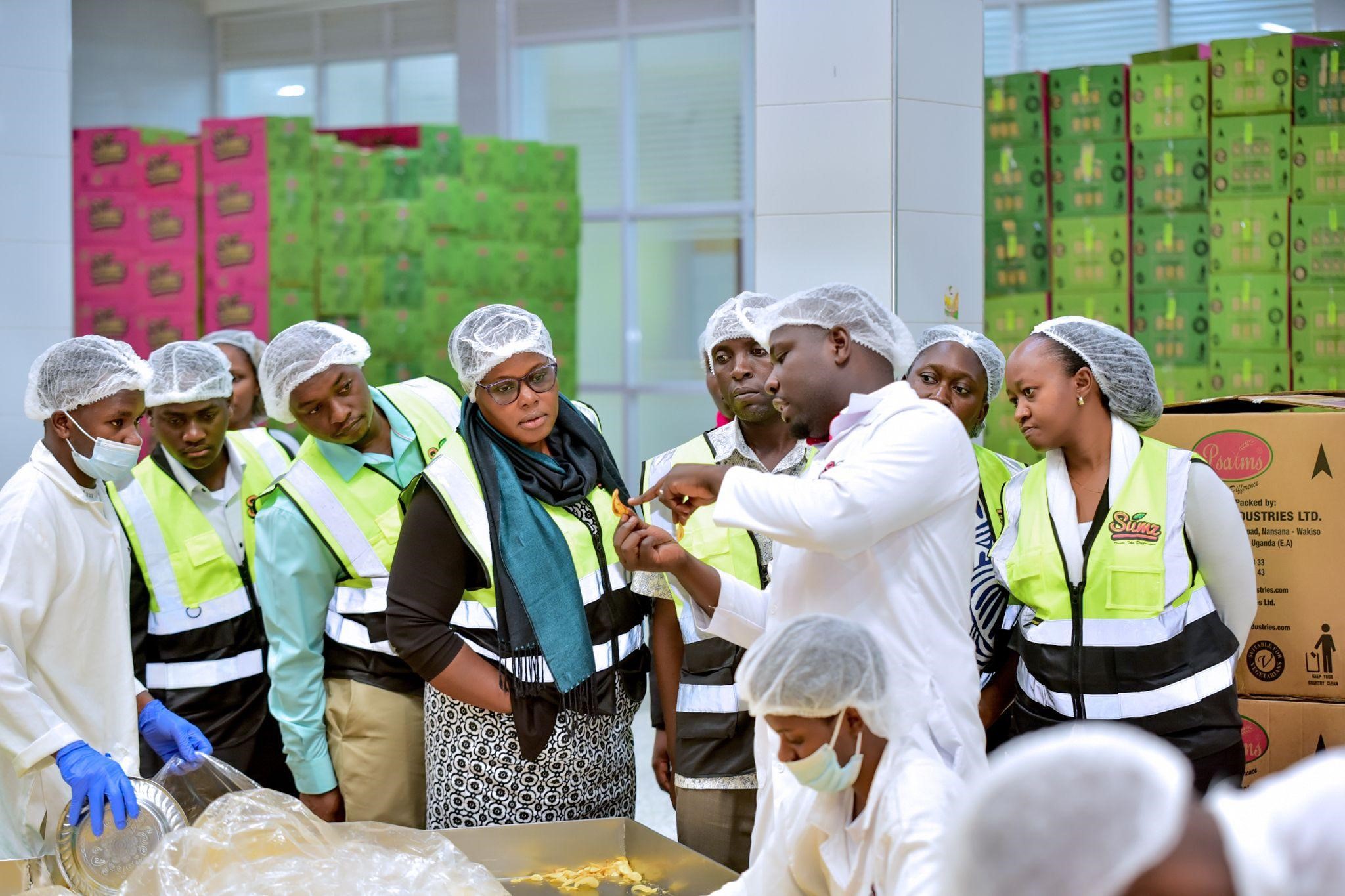
The partnership could provide students with direct exposure to real-time production systems, standard operating procedures (SOPs), and quality assurance frameworks, strengthening the practical relevance of their academic training.
Among the innovative ideas discussed was a potential competition involving students from the Fine Art and Industrial Design disciplines to redesign packaging for selected Sumz products. The proposal would allow top designs to be commercially adopted, creating a direct bridge between creativity, intellectual property development, and industrial application.
Research, Innovation and Commercialisation
Both institutions expressed interest in joint applied research initiatives, particularly in process optimisation, data analytics for manufacturing efficiency, product improvement, and sustainable production systems.
Opportunities were also discussed around collaborative research in machine design, crop development for snack processing, and factory energy solutions, areas that not only benefit Psalms but have broader implications for Uganda’s manufacturing sector.
The engagement further highlighted potential linkages with the University’s innovation and commercialisation structures, including the University Innovation Pod (UNIPOD), to support co-creation and scaling of student-led innovations.
Mr Awel Uwihanganye, Chief Advancement Officer at Makerere University, proposed strengthening the engagement through structured programming, including a planned collaboration between the University’s innovation Hub and the upcoming incubation Hub at Psalms Food Industries, particularly to support the commercialisation of research outcomes for both students and staff.
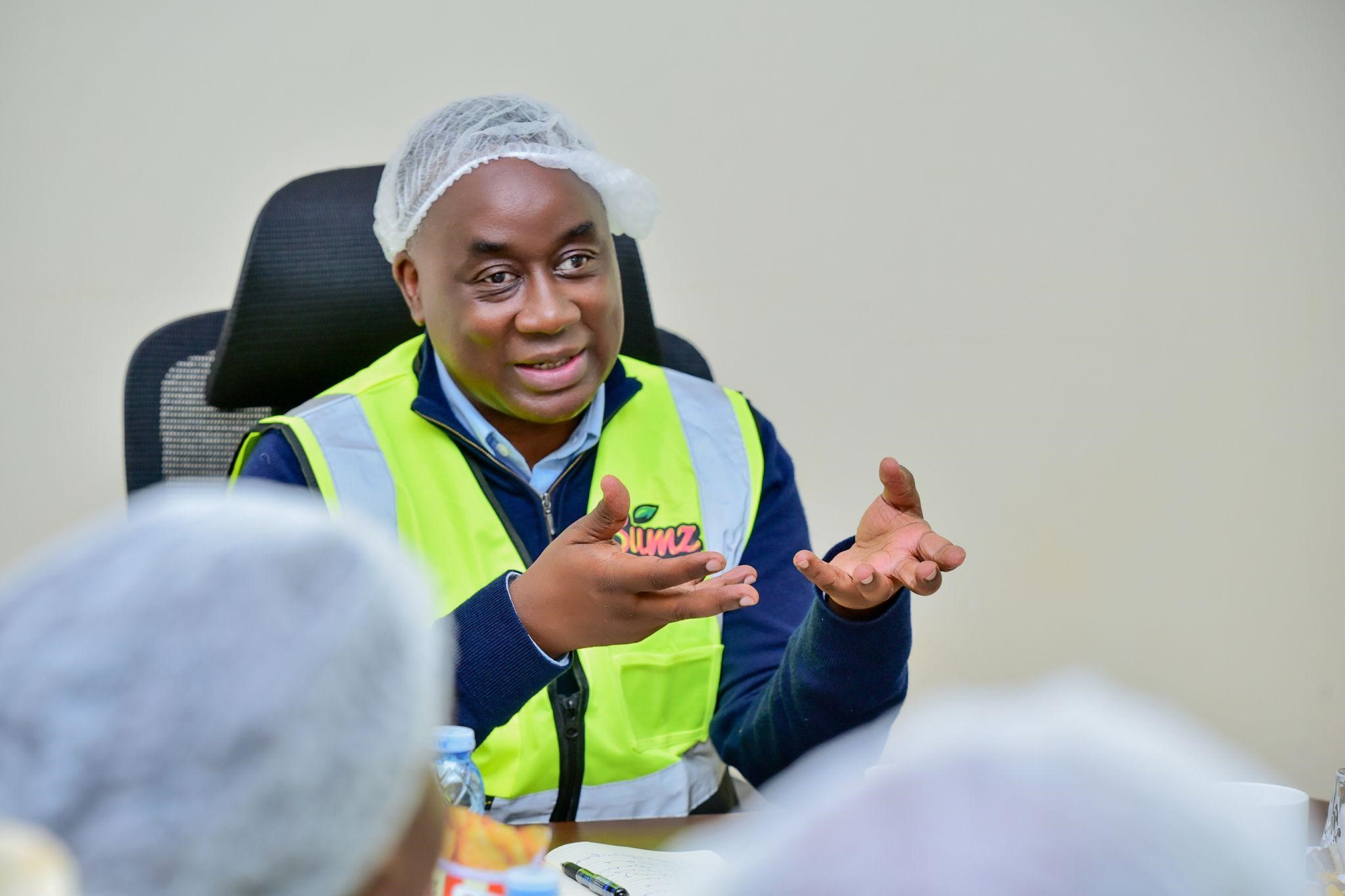
Curriculum Co-Creation and Staff Exchange
Beyond student placements, discussions also focused on co-developing academic content that responds more directly to industry needs, particularly within the manufacturing value chain.
Proposals included guest lectures by industry practitioners, staff exchange programmes to expose academic staff to factory operations, and tailored short courses for Psalms staff based on identified skills gaps.
Dr. Jude Mugarura, Head of the Department of Marketing and Management at COBAMS, emphasised the importance of embedding the partnership within academic programming. He proposed “internships for students in HR, marketing, international business, accounting and finance,” as well as staff exchanges to give University staff hands-on exposure to manufacturing operations.
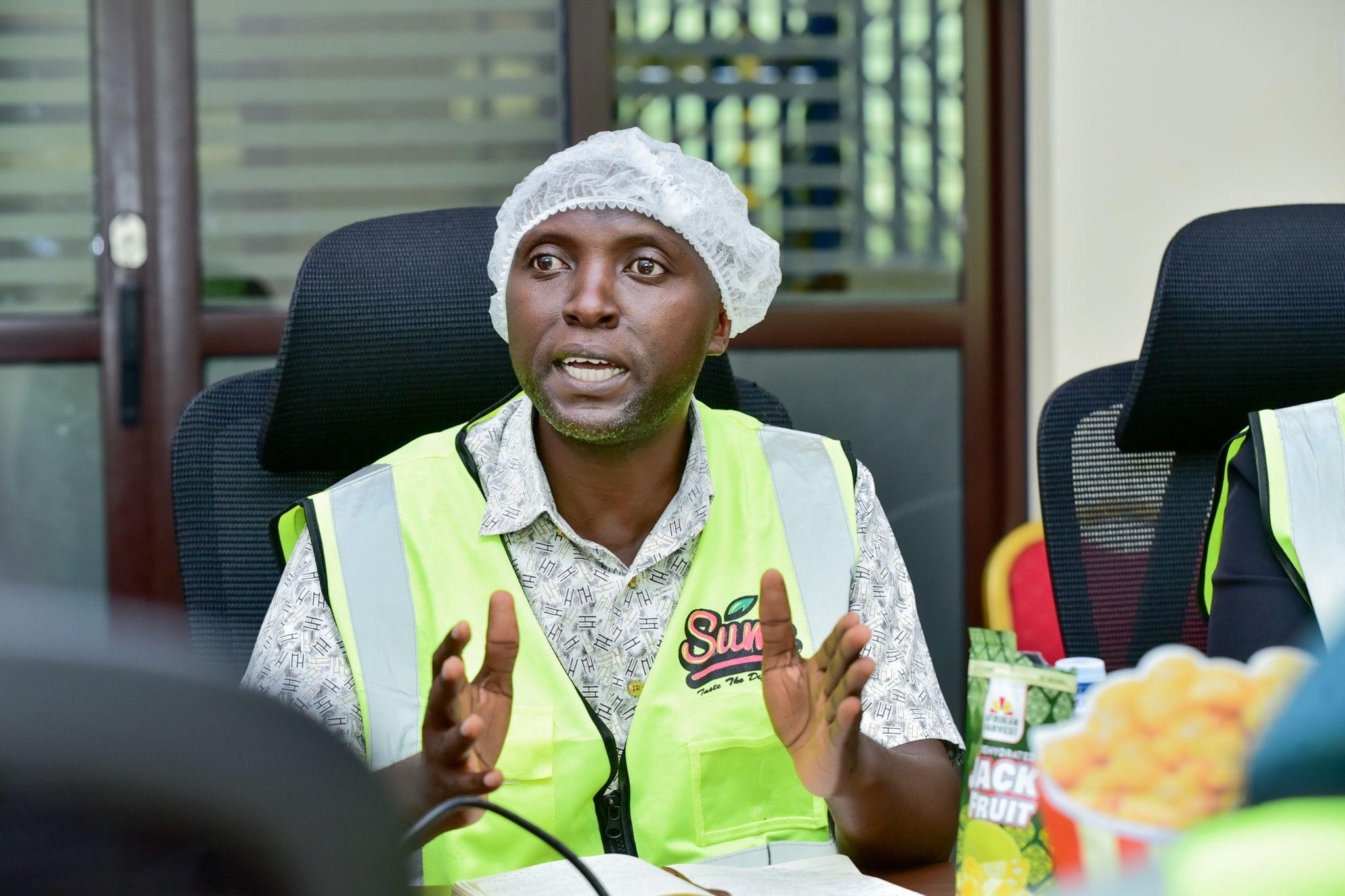
He further suggested specialised courses tailored to the factory’s needs and attachment of research students interested in manufacturing. Such collaboration would contribute to curriculum responsiveness and ensure that graduates are equipped with market-relevant competencies.
Strengthening University–Industry Linkages
The engagement reflects Makerere University’s continued commitment to strengthening partnerships that bridge knowledge generation and real-sector application.
Both institutions expressed a shared vision of building a structured, mutually beneficial collaboration that integrates research, innovation, skills development, and enterprise growth, positioning the University as a key knowledge partner in Uganda’s manufacturing transformation.
Discussions remain ongoing as both parties refine priority areas for formalisation.
Caroline Kainomugisha is the Communications Officer, Advancement Office.
General
Makerere University commemorates 13 transformative years of partnership with Mastercard Foundation
Published
3 days agoon
March 2, 2026
On Friday, 27th February 2026, Makerere University proudly celebrated 13 years of a significant partnership with the Mastercard Foundation, a prestigious independent organisation headquartered in Toronto, Canada. Since its inception in 2013 with the launch of the Scholars Program-currently headed by Prof. Justine Namaalwa, this collaboration has grown significantly, expanding to include two additional initiatives: The E-learning Initiative-headed by Prof. Paul Muyinda Birevu and the Africa Climate Collaborative-headed by Prof. Gorretie Nabanoga. This long-term partnership underscores the shared commitment to fostering education, innovation, and sustainability in Uganda and across Africa.
The colourful event coincided with the 76th Graduation Ceremony, during which Makerere University honoured Ms. Reeta Roy, the Founding President and CEO of the Mastercard Foundation, with an honorary Doctor of Laws.

In her commencement speech, Ms. Roy thanked Makerere University for considering a partnership with the Mastercard Foundation and for conferring upon her a prestigious honorary award.
“Mastercard Foundation is honoured to collaborate with this esteemed university, and I appreciate the recognition through this award. I am excited to be associated with Makerere University and look forward to actively embodying its values. Joining the broader community of alumni from this distinguished institution is a privilege, and I am eager to contribute to its legacy,” stated Ms. Roy.

During the reception in honour of Ms. Roy, the Chairperson of Makerere University Council, Dr. Lorna Magara, acknowledged the invaluable support from the Mastercard Foundation. She emphasised the profound impact of the Foundation’s various initiatives, particularly the scholarships for disadvantaged youth, which enable them to access higher education and opportunities that might have otherwise been beyond their reach.
“On behalf of the Makerere University Council and the broader University community, I extend our sincere gratitude to Mastercard Foundation for its commitment to collaborating with Makerere University in various endeavours, especially for providing scholarships to our underprivileged young people who would never have stepped inside a lecture room at the University.” Dr. Magara stated.

Dr. Magara, in a special way, thanked Ms. Roy for her transformative leadership and unwavering commitment to supporting young people in Africa, citing her efforts to ensure young people get their voices heard.
“As a university, our business is with young people. We are therefore committed to providing the environment and education that deliver meaningful pathways. We will provide an environment that ensures young people have a voice and agency to create meaningful change in society.” Dr. Magara pledged.

Dr. Magara further congratulated Ms. Roy on her honorary Doctor of Laws from Makerere University, noting that it is the university’s highest honour for individuals who have excelled in their careers.
“On behalf of the Makerere University community, I would like to extend my heartfelt congratulations on your honorary Doctor of Laws. This esteemed recognition represents the highest honour our institution can bestow on individuals who have demonstrated exceptional achievement and excellence across various facets of their career.” Dr. Magara remarked.
Prof. Justine Namaalwa, the Program Director of the Mastercard Foundation Scholars Program and the Coordinator for all Mastercard Foundation Initiatives at Makerere University, expressed her appreciation for the thirteen-year collaboration between Makerere University and the Mastercard Foundation. She highlighted that the partnership had yielded significant, impactful results.

“In 2013, Makerere University partnered with the Mastercard Foundation to educate the next generation of transformative African leaders who can positively impact their lives, their communities, and the economies of Africa. The partnership has had a significant impact. I thank the University Management and the Foundation team for this visionary collaboration,” remarked Prof. Namaalwa.
Prof. Namaalwa articulated that the partnership with the Mastercard Foundation is primarily focused on empowering young people as agents of change for transformational leadership in Africa. She presented compelling statistics demonstrating the positive impact of the scholars’ program, highlighting the success of individuals who have completed their education and their subsequent professional experiences after university graduation.

“This partnership focuses on young people, aiming to create positive change in their lives. To date, the Scholars Program has graduated 974 alumni, with 48% securing formal employment, 18% starting their own businesses, 8% participating in internships, and 5% pursuing further education. Overall, 72% of Scholar alumni are actively engaged in employment or entrepreneurship,” Prof. Namaalwa stated.
The colourful event showcased a dynamic array of activities that highlighted the entrepreneurial spirit of Scholars and alumni from the Mastercard Foundation at Makerere University. Attendees enjoyed a mini-exhibition featuring innovative products from these ventures.

A video documentary illustrated the positive impact of the three Mastercard Foundation initiatives. The event also featured inspiring poetry recitations by Scholars and a lively atmosphere of music and dance, creating an engaging and memorable experience for all participants.
The high-level event was attended by senior University officials, led by the Chairperson of Council, Dr. Lorna Magara; the Vice-Chancellor, Prof. Barnabas Nawangwe; the Vice-Chancellor, Academic Affairs, Prof. Sarah Ssali, Deputy, and the Ag. Deputy Vice-Chancellor, Finance and Administration Prof. Winston Tumps Ireeta. Mr Yusuf Kiranda, the University Secretary; and Prof. Buyinza Mukadasi, the Academic Registrar, Chancellor Emeritus-Prof. Ezra Suruma, former Chairperson of the Steering Committee of Mastercard Foundation Scholars Program-Prof. Umar Kakumba, and the Deputy Executive Secretary, RUFORUM, and former Program Coordinator of the Scholars Program at Makerere University-Dr. Florence Nakayiwa, among many other officials graced the function.

The event was also graced by a high-level delegation from the Mastercard Foundation, led by Ms. Reeta Roy, the Founding President of the Foundation, and included the Mastercard Foundation Teams from the Country offices in Kigali, Nairobi, and Kampala; the Program partners; the Mentors, Scholars and alumni; as well as the Program staff of the three Mastercard Foundation Initiatives at Makerere University.
At the end of the event, Makerere University honoured Ms. Reeta Roy with University memorabilia, including a pencil-drawn portrait, a pencil-drawn photo of the Ivory Tower, and other Ugandan crafts. Ms. Roy cut a graduation cake together with the 10 graduates of the 76th graduation ceremony from the Mastercard Foundation Scholars Program.
Bernard Buteera is the Principal Public Relations Officer for the Mastercard Foundation Scholars Program at Makerere University.
Trending
-

 Humanities & Social Sciences1 week ago
Humanities & Social Sciences1 week agoMeet Najjuka Whitney, The Girl Who Missed Law and Found Her Voice
-

 General19 minutes ago
General19 minutes agoAdvert: Admissions for Diploma/Degree Holders under Private Sponsorship 2026/27
-

 General1 week ago
General1 week ago76th Graduation Highlights
-

 Agriculture & Environment2 weeks ago
Agriculture & Environment2 weeks agoUganda Martyrs Namugongo Students Turn Organic Waste into Soap in an Innovative School Project on Sustainable Waste Management
-

 Health2 weeks ago
Health2 weeks agoMakerere University School of Public Health Graduates First Cohort of Cost-Effectiveness Analysis Short Course
